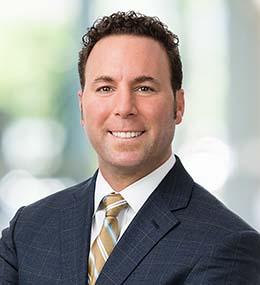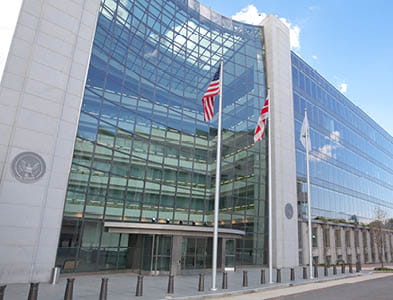5 Steps For Private Funds As SEC Ramps Up Oversight
5 Steps For Private Funds As SEC Ramps Up Oversight
This article was co-authored by Joel Cohen, Stout Managing Director, and Jaclyn Grodin, counsel at Goulston Storrs PC.
During his first year at the U.S. Securities & Exchange Commission (SEC), Chair Gary Gensler announced to the markets clearly and often through congressional testimony, speeches, and hiring decisions that the SEC intended to dedicate more resources to the oversight of private funds. Gensler has wasted little time in the new year bringing his priorities to fruition.
Private fund advisers, compliance officers, and counsel that have yet to refresh their funds’ written policies and procedures should consider recent SEC announcements and proposed rule amendments as additional evidence that the agency’s efforts to refine private fund oversight are already underway. And those funds that are already in the process of evaluating their compliance programs may be well served in studying whether possible revisions to their programs align with the most current SEC messaging in the private funds space.
Recent SEC Activity
Proposed Amendments to Form PF
On January 26, 2022, the SEC proposed amendments to Form PF, the confidential reporting form for certain SEC-registered investment advisers to private funds.1 Among other things, the proposed amendment would require covered funds to immediately report upon the occurrence of key events relevant to financial stability and investor protection. The unusually brief 30-day public comment period coupled with Gensler’s remarks on the proposed amendment further amplify the SEC’s intention to quickly redefine the relationship between the agency and private funds.2
Private Funds Risk Alert
One day later on January 27, 2022,3 the SEC’s Division of Examinations (“EXAMS”) published a Risk Alert (the “Risk Alert”) highlighting various compliance issues the staff observed while engaged in examinations of private funds advisers. The Risk Alert reiterated certain deficiencies on which the staff focused in a June 2020 Risk Alert.4 Of particular interest to private fund managers and compliance personnel, the staff observed the following:
- Failure to Adhere to Fund Disclosures: Advisers are not following the practices described in various fund documents to the detriment of investors.
- Misrepresentations Concerning Performance, Track Records, Awards: Failure to accurately represent past successes, including awards, and current performance appeared in exams across numerous funds.
- Failure to Conduct Appropriate and Reasonable Due Diligence: Advisers did not undertake sufficient due diligence on underlying investments and service providers, and did not adhere to the due diligence processes outlined in fund disclosures when managing investments or implementing disclosed investment strategies.
- Misleading and Improper Hedge Clauses: Advisers continue to include statements in investor disclosures purporting to limit an adviser’s liability (a “hedge clause”) without proper consideration of the requirements of the Advisers Act. These statements seek to waive or improperly narrow an adviser’s fiduciary duty under the Advisers Act, which Gensler reiterated last year is impermissible.5
Private Fund Proposed Reforms
The SEC further clarified its focused interest in private fund reform two weeks later on February 9, 2022, with the announcement of a number of proposed amendments to the Investment Advisers Act of 1940 (the “Advisers Act”).6 During an SEC Open Meeting in which the proposed changes were announced, agency representatives described in detail the impact to SEC-registered private fund advisers under the proposed amendments:
- Quarterly Statement and Audit Rule: Advisers would be required to provide private investors with quarterly statements detailing information about fund performance, fees, and expenses as well as obtain an annual audit for each managed fund.
- Adviser-Led Secondaries Rule: For each adviser-led secondary transaction, advisers would have to obtain a fairness opinion from an independent opinion provider and distribute that opinion to investors in advance of the transaction.
- Prohibited Activities Rule: Reimbursement and indemnification for costs associated with exams and investigations would be prohibited, as would exculpation and limitation of liability clauses.
- Preferential Treatment Rule: Preferential treatment to investors regarding redemption and information rights would be prohibited, and other preferential treatment typically disclosed in side letters would be prohibited unless fully and fairly disclosed to fund investors.
- Books and Records and Compliance Rule Amendments: The SEC would have easier access to the information necessary to assess an adviser’s compliance with the proposed rules if enacted. Additionally, advisers would be required to document their annual review in writing.
During this meeting,7 Gensler and others explained the agency’s motivation in proposing the new rules: the promotion of efficiency, competition, and transparency, each of which sits at the heart of the SEC’s protective mission. Gensler and Commissioner Allison Herren Lee reiterated that private fund investors are not merely wealthy individuals and companies but include steadily increasing involvement by retail investors through participation in retirement accounts and government pension plans.
How Can Private Funds React?
The SEC’s intention to bring about more robust transparency comes at a time when private fund activity in the markets has never been greater, and pension and retirement plan exposure to private funds is larger than ever before and continues to grow. As funds examine strategies to raise and allocate capital, advisers should consider the impact a revised Form PF and amendments to the Advisers Act would have on reporting obligations and whether their funds may be vulnerable to the deficiencies identified in the Risk Alert.
In particular, the February 9 meeting provided substantial insight into the agency’s commitment to comprehensive private fund reform in the very near term. Gensler again placed the interests of the everyday investors at the heart of the American economy – specifically, teachers, firefighters, municipal workers, and students – at the center of the agency’s efforts and emphasized the wide reach and impact private funds have on the national economy. Understanding the SEC’s motivation should guide private funds in structuring their compliance programs and managing exams and investigatory inquiries.
Many private funds have likely completed or are in the process of a thorough review of their written policies and procedures to ensure compliance with Rule 206(4)-7 of Advisers Act (the “Compliance Rule”) in light of recent SEC guidance and proposed amendments to applicable rules and statutes. In addition to closely reviewing the Risk Alert to determine if any problem areas the staff identified are present within a fund or across a firm, advisers should consider whether modifications to the following compliance areas are appropriate in light of the possible rule changes on the horizon:
- Ensure protection of the attorney-client privilege and work product doctrine. With increased regulatory oversight, it is critical that clear policies and procedures exist to ensure protection of the attorney-client privilege and attorney work product. This may include consultation with key stakeholders to assess current practices for identifying protected material as well as revising applicable policies to limit over-designation of information as subject to attorney-client or work product protection. Marking information as “attorney-client” or “privileged” without a proper basis to do so, or including such designations in an unreasonably broad manner as a standardized firm policy, may lead to close scrutiny by regulators and can result in a loss of protected status for information that advisers believed was otherwise safeguarded.
- Define the reporting relationship between compliance officers, advisers and senior executives, and counsel. A reporting structure that encourages a strong degree of independence for compliance officers and their teams is foundational to a successful compliance program. Advisers should consider whether compliance personnel should report to an adviser or general counsel (or similarly situated representative), and at what level the compliance officer should sit vis-à-vis other senior personnel. Advisers should also consider whether fund representatives are aware of how to identify and specifically disclose compliance issues within the designated reporting structure.
- Evaluate document retention and preservation practices. Inadvertent destruction or modification of documents and other records will cause substantial issues in responding to both regulatory exam inquiries and investor requests for information. Advisers should evaluate whether current controls are sufficient in light of the growing scope of information the SEC now expects funds to promptly provide during the course of an exam or investigation. Consultation with internal and external IT representatives may help clarify weaknesses in current preservation policies, including whether the appropriate levels of data encryption are in place. Relatedly, clear policies concerning the use of personal devices to engage in fund and investment activities should be reconsidered in light of continued COVID-19 modifications to work schedules and locations and the growing use of hybrid office arrangements. Careful attention should also be paid when updating applications and systems to ensure that historical information is archived and available on a going-forward basis.
- Assess plans for secondary-led transactions: Under the proposed amendment to the Advisers Act, advisers will be required to obtain fairness opinions from independent opinion providers on the fairness of the price being offered to the fund for assets being sold. To the extent a fund’s current source for fairness opinions comes from an affiliated entity or firm with whom the adviser has a business relationship, the adviser should consider undertaking due diligence and interviewing a new provider source sufficiently in advance of any potential rule change. Further, because funds will be required to prepare and distribute summaries related to their relationships with the opinion provider, advisers should evaluate whether the implementation of new written policies and procedures to govern the summary process are appropriate.
- Review information about fees and performance in marketing materials. The Risk Alert focused heavily on misrepresentations related to fund performance and published track record as well as advisers’ repeated failures to adhere to fund disclosures in calculating management fees. In light of the staff’s increased focus on pension and retirement plan member protection and the use of fee and performance information in investor solicitations, advisers should consider whether (i) any inconsistencies in their fee calculation policies and procedures exist, even if seemingly minor in scope, and (ii) the data underlying their performance calculations is current, accurate, and appropriate under the terms of the applicable investor agreements. This review might include an analysis of the fund’s impairment policy given current market conditions amid the ongoing pandemic, depending on the nature of the fund’s underlying assets. Advisers and compliance officers could also consider employing periodic gap analyses of fee calculation formulas to bring to light inconsistencies that may exist based on utilization of prior policies, with subsequent disclosure of any resulting adjustments to historical results and/or prospective calculation methods.
Conclusion
As Gensler has previewed since his tenure at the agency began, he intends to bring regulatory oversight of the $18 trillion private funds industry to the forefront of the SEC’s 2022 agenda.8 The agency’s announcements and proposed rule changes should provide advisers with additional incentives to update and evaluate their compliance programs as well as their investor outreach plans and strategic marketing efforts. Staff seem poised to quickly commence an updated exam program that differs in material ways from prior agency initiatives in the private fund arena. Advisers that choose not to integrate the SEC’s concentrated public advice into their own compliance programs may find increased regulatory inquiries on the horizon.
Read the full article on Law360.
2 Chair Gary Gensler Statement on Form PF, January 26, 2022
5 November 10, 2021 Prepared Remarks at the Institutional Limited Partners Association Summit by Chair Gary Gensler (“Make no mistake: An investment adviser to a private fund has a federal fiduciary duty to the fund enforceable under the Advisers Act. This federal fiduciary duty may not be waived.”)
6 Private Fund Proposed Reform Fact Sheet
8 Risk Alert, Part I (“More than 5,000 SEC-registered investment advisers, approximately 35% of all SEC-registered advisers, manage approximately $18 trillion in private fund assets.”)



